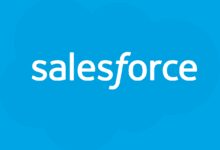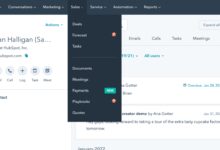Salesforce CRM Cost: 7 Shocking Truths You Must Know in 2024
Thinking about adopting Salesforce but unsure about the real Salesforce CRM cost? You’re not alone. Many businesses get blindsided by hidden fees, complex pricing tiers, and unexpected add-ons. Let’s break down exactly what you’ll pay—and why.
Salesforce CRM Cost: Understanding the Core Pricing Tiers

Salesforce offers a range of CRM editions, each tailored to different business sizes and needs. The base pricing varies significantly, and understanding these tiers is the first step in estimating your total Salesforce CRM cost. From Essentials to Unlimited, the price reflects not just features but also scalability and support.
Salesforce Essentials: Entry-Level Simplicity
Salesforce Essentials is designed for small businesses with up to 10 users. It’s the most affordable entry point into the Salesforce ecosystem, offering basic CRM functionality such as contact management, lead tracking, and email integration.
- Priced at $25 per user per month when billed annually.
- Ideal for startups or small sales teams needing a simple CRM.
- Limited customization and automation compared to higher tiers.
While the Salesforce CRM cost for Essentials seems low, businesses should be aware of its limitations. As your team grows or your processes become more complex, you may quickly outgrow this edition.
Salesforce Professional: The Mid-Tier Workhorse
The Professional edition is one of the most popular choices for growing businesses. It offers a balance between affordability and functionality, making it a common upgrade from Essentials.
- Priced at $80 per user per month (billed annually).
- Includes workflow automation, customizable dashboards, and role-based access.
- Supports integration with third-party apps via APIs.
This tier is often seen as the sweet spot for companies that need more than basic CRM tools but aren’t ready for enterprise-level complexity. However, the Salesforce CRM cost can escalate quickly when adding users or integrating advanced tools.
Salesforce Enterprise and Unlimited: Premium Power for Large Teams
For larger organizations with complex sales, service, and marketing operations, Salesforce Enterprise and Unlimited editions offer full customization, advanced analytics, and 24/7 support.
- Enterprise edition costs $165 per user per month.
- Unlimited edition jumps to $330 per user per month.
- Includes full API access, sandbox environments, and dedicated customer success managers.
These editions are designed for scalability and deep integration. While the Salesforce CRM cost is significantly higher, the ROI can justify the investment for enterprises managing thousands of leads and customers.
Hidden Costs Behind the Salesforce CRM Cost
The advertised price per user is just the tip of the iceberg. Many companies underestimate the total Salesforce CRM cost because they overlook implementation, training, and third-party tools. Let’s uncover the often-ignored expenses.
Implementation and Setup Fees
Implementing Salesforce isn’t as simple as signing up and logging in. Most businesses require professional services to configure workflows, migrate data, and set up user roles.
- Implementation costs can range from $5,000 to $50,000+ depending on complexity.
- Consultants charge between $150–$300 per hour for customization.
- DIY setup is possible but risky without technical expertise.
According to Salesforce’s official blog, companies that invest in proper implementation see 3x higher user adoption and ROI.
Training and User Adoption Expenses
Even the best CRM fails if employees don’t use it. Training is essential but often under-budgeted.
- Formal training programs cost $500–$2,000 per employee.
- Online courses via Trailhead are free but may not suffice for complex setups.
- Poor adoption leads to data silos and wasted licenses.
“A CRM is only as powerful as the people using it.” — Salesforce Customer Success Report, 2023
Investing in change management and continuous learning ensures your Salesforce CRM cost translates into real productivity gains.
Integration and AppExchange Add-Ons
Salesforce’s AppExchange hosts over 5,000 apps that extend functionality. While some are free, many are paid and can significantly increase your monthly bill.
- Popular tools like DocuSign, Mailchimp, or industry-specific apps cost $10–$100+ per user per month.
- Custom integrations with ERP or marketing automation platforms require developer time.
- API call limits in lower tiers may force upgrades for heavy integrators.
For example, a company using AppExchange to integrate with HubSpot or Slack could add $20–$50 per user monthly—doubling the base Salesforce CRM cost.
Salesforce CRM Cost by Business Size: Small, Medium, and Enterprise
The total investment varies dramatically based on company size. Let’s break down realistic budgets for different business types.
Small Businesses: Keeping Salesforce CRM Cost Under Control
For startups and small teams, minimizing upfront costs is critical. The goal is to get value without overpaying for unused features.
- 5 users on Essentials: $1,500/year + $3,000 implementation = $4,500 first-year cost.
- Use free Trailhead training to reduce learning costs.
- Avoid premium apps unless absolutely necessary.
Tip: Start small and scale. Many small businesses make the mistake of overbuying licenses or jumping to Professional too soon.
Mid-Sized Companies: Balancing Features and Budget
Companies with 20–100 employees often choose Professional or Enterprise editions. They need automation, reporting, and integration but still watch margins.
- 25 users on Professional: $24,000/year + $15,000 implementation + $10,000 training = ~$49,000 first year.
- Common add-ons: CPQ ($75/user), Marketing Cloud ($400/month base).
- Consider phased rollout to manage costs.
Mid-sized firms should budget 1.5x to 2x the annual license fee for total implementation and support. The Salesforce CRM cost here is justified by improved sales cycles and customer retention.
Enterprise Organizations: Total Cost of Ownership (TCO)
Large enterprises often deploy Salesforce across multiple departments—sales, service, marketing, and IT. The Salesforce CRM cost becomes a major line item in the tech budget.
- 500 users on Enterprise: $980,000/year in licenses alone.
- Implementation: $100,000–$500,000+ with consulting firms.
- Ongoing: $200,000+/year for admins, developers, and renewals.
According to a Gartner TCO study, the average enterprise spends 3.2x the license cost on indirect expenses over five years. This includes downtime, maintenance, and internal labor.
Salesforce Editions Compared: Which Offers the Best Value?
Choosing the right edition is crucial to optimizing Salesforce CRM cost. Let’s compare features and value across the board.
Feature Breakdown: Essentials vs. Professional vs. Enterprise
Each edition unlocks new capabilities. Here’s a side-by-side comparison:
- Essentials: Basic lead/contact management, email sync, 24/7 support via chat/email.
- Professional: Workflow rules, custom reports, API access, multi-currency support.
- Enterprise: Full customization, sandbox environments, advanced security, delegated administration.
The jump from Professional to Enterprise is significant. If you don’t need sandboxes or full API access, you might not need Enterprise—saving thousands annually.
When to Upgrade Your Salesforce Plan
Timing your upgrade can prevent overspending. Signs you need a higher tier:
- You’re manually doing tasks that could be automated.
- Users complain about system limitations or slow reporting.
- You need integration with ERP, HR, or finance systems.
Upgrading too early wastes money; upgrading too late hurts productivity. Monitor user feedback and system performance quarterly.
Cost vs. ROI: Is Salesforce Worth the Investment?
According to Salesforce, companies see an average 29% increase in sales after CRM adoption. But ROI depends on usage.
- High ROI comes from automation, faster deal cycles, and better customer insights.
- Poor ROI stems from low adoption, bad data, or misconfigured workflows.
- Break-even point is typically 12–18 months with proper implementation.
A Nucleus Research study found that Salesforce delivers $8.71 for every $1 spent—among the highest ROI of any enterprise software.
Salesforce CRM Cost for Specific Clouds: Sales, Service, Marketing
Salesforce isn’t just a sales tool. Different “clouds” serve different functions—and come with different price tags.
Sales Cloud: The Core of Salesforce CRM Cost
Sales Cloud is the foundation of Salesforce’s CRM offerings. It manages leads, opportunities, accounts, and sales pipelines.
- Essentials, Professional, Enterprise, and Unlimited editions are all Sales Cloud variants.
- Advanced features like Einstein Analytics or Sales Cloud Automation cost extra.
- Most accurate reflection of base Salesforce CRM cost.
If you’re only using Sales Cloud, your costs are predictable. But adding other clouds multiplies expenses.
Service Cloud: Support and Customer Service Pricing
Service Cloud adds case management, knowledge bases, and omnichannel support (email, chat, phone).
- Starts at $75/user/month for Digital (basic).
- Professional: $100/user/month.
- Enterprise and Unlimited: $150–$300/user/month.
For companies with large support teams, Service Cloud can double the Salesforce CRM cost. But it reduces response times and improves customer satisfaction.
Marketing Cloud: Email, Automation, and Analytics
Marketing Cloud is a separate beast. It’s not priced per user but as a package based on contacts and features.
- Entry-level plans start at $400/month.
- Mid-tier: $1,500–$5,000/month for 100k contacts.
- Premium: Custom pricing for enterprise brands.
Marketing Cloud can cost more than Sales or Service Cloud combined. It’s powerful for email campaigns and customer journey mapping, but often overkill for small businesses.
How to Reduce Your Salesforce CRM Cost
You don’t have to pay full price. Smart strategies can cut your Salesforce CRM cost by 20–40%.
Negotiate with Salesforce or a Partner
Salesforce rarely gives discounts publicly, but they exist—especially for annual commitments or multi-year contracts.
- Ask for a discount when buying 10+ licenses.
- Work with a Salesforce partner who may offer bundled deals.
- Consider mid-year renewals when Salesforce is pushing quarterly targets.
Many customers report 10–20% discounts just by asking. For enterprise deals, savings can exceed $100,000.
Optimize User Licenses and Roles
One of the biggest waste areas is unused or over-provisioned licenses.
- Conduct quarterly license audits.
- Use Chatter Free or Light licenses for read-only users.
- Reassign licenses from inactive employees immediately.
Example: A company with 100 users but only 80 active can save $19,200/year on Professional edition by reclaiming 20 licenses.
Leverage Free Tools and Trailhead
Salesforce offers powerful free resources that reduce training and development costs.
- Trailhead: Free interactive learning platform for admins and developers.
- Developer Edition: Free sandbox for testing and learning.
- Nonprofit pricing: 10 free User Licenses and 10 free Chatter Free Licenses.
Investing time in Trailhead can save thousands in consultant fees. Many admins become certified without spending a dime.
Alternatives to Salesforce: Lower-Cost CRM Options
If the Salesforce CRM cost is too high, several alternatives offer similar functionality at lower prices.
HubSpot CRM: Free Forever Plan with Premium Upgrades
HubSpot offers a robust free CRM with sales, marketing, and service tools.
- Free plan includes contact management, email tracking, and deal pipelines.
- Paid plans start at $50/month for small teams.
- Integrates well with Gmail, Outlook, and Slack.
While not as customizable as Salesforce, HubSpot is ideal for SMBs wanting a low Salesforce CRM cost alternative.
Zoho CRM: Affordable and Feature-Rich
Zoho CRM is a strong contender with tiered pricing and AI features.
- Standard plan: $14/user/month.
- Professional: $23/user/month.
- Enterprise: $40/user/month.
Zoho offers 80% cost savings compared to Salesforce Enterprise. It’s especially popular in mid-market companies.
Pipedrive: Sales-Focused and Intuitive
Pipedrive is built for sales teams who want simplicity and visual pipelines.
- Essential plan: $14.90/user/month.
- Advanced: $49.90/user/month.
- Great for startups and small sales teams.
While it lacks Salesforce’s depth, Pipedrive excels in usability and speed. A solid choice if your Salesforce CRM cost budget is tight.
Future Trends Impacting Salesforce CRM Cost
The CRM landscape is evolving. New technologies and pricing models will shape future Salesforce CRM cost.
AI and Einstein Analytics: Premium Pricing Ahead
Salesforce is heavily investing in AI through Einstein. Features like predictive scoring, automated insights, and chatbots are becoming standard—but not free.
- Einstein Analytics starts at $75/user/month.
- AI-powered sales assistants cost extra.
- Future editions may bundle AI, increasing base prices.
AI will deliver value, but expect a 15–25% price hike on editions that include it.
Subscription Fatigue and Modular Pricing
Businesses are pushing back on bloated SaaS subscriptions. Salesforce may shift to more modular pricing.
- Potential for à la carte features (e.g., pay only for workflow automation).
- Industry-specific bundles (healthcare, finance) could reduce waste.
- Usage-based pricing models may emerge.
This could lower Salesforce CRM cost for companies that don’t need full suites.
Cloud Consolidation and Integration Costs
As companies use fewer, more integrated platforms, the value of Salesforce’s ecosystem grows—but so does dependency.
- Deep integration with Slack, Tableau, and MuleSoft increases lock-in.
- Switching costs become prohibitive, reducing negotiation power.
- Expect higher renewal prices for long-term customers.
Plan for long-term costs, not just initial Salesforce CRM cost.
What is the starting price for Salesforce CRM?
The starting price for Salesforce CRM is $25 per user per month with the Essentials edition, billed annually. This plan is designed for small businesses and includes basic CRM features like contact management, lead tracking, and email integration.
Is Salesforce CRM worth the cost?
For many businesses, yes. Salesforce CRM offers powerful automation, scalability, and integration capabilities. Companies report an average ROI of $8.71 for every $1 spent, but success depends on proper implementation, user adoption, and ongoing management.
Are there hidden costs with Salesforce?
Yes. Beyond the per-user license fee, common hidden costs include implementation ($5,000–$50,000+), training ($500–$2,000 per employee), third-party apps, and custom development. These can double the total Salesforce CRM cost in the first year.
Can I reduce my Salesforce CRM cost?
Absolutely. You can reduce costs by negotiating discounts, optimizing user licenses, using free tools like Trailhead, and avoiding unnecessary AppExchange apps. Regular audits and phased rollouts also help control spending.
What’s the cheapest alternative to Salesforce?
HubSpot CRM offers a free forever plan with robust features. Zoho CRM starts at $14/user/month, and Pipedrive at $14.90/user/month. These are excellent low-cost alternatives for small to mid-sized businesses.
Understanding the true Salesforce CRM cost goes far beyond the sticker price. From licensing and implementation to training and add-ons, the total investment can vary from a few thousand to hundreds of thousands of dollars. The key is to align your Salesforce plan with your business size, goals, and budget. Whether you’re a startup using Essentials or an enterprise on Unlimited, smart planning and continuous optimization can maximize ROI and minimize waste. As AI and modular pricing reshape the future, staying informed will help you make the most of your CRM investment.
Further Reading:



